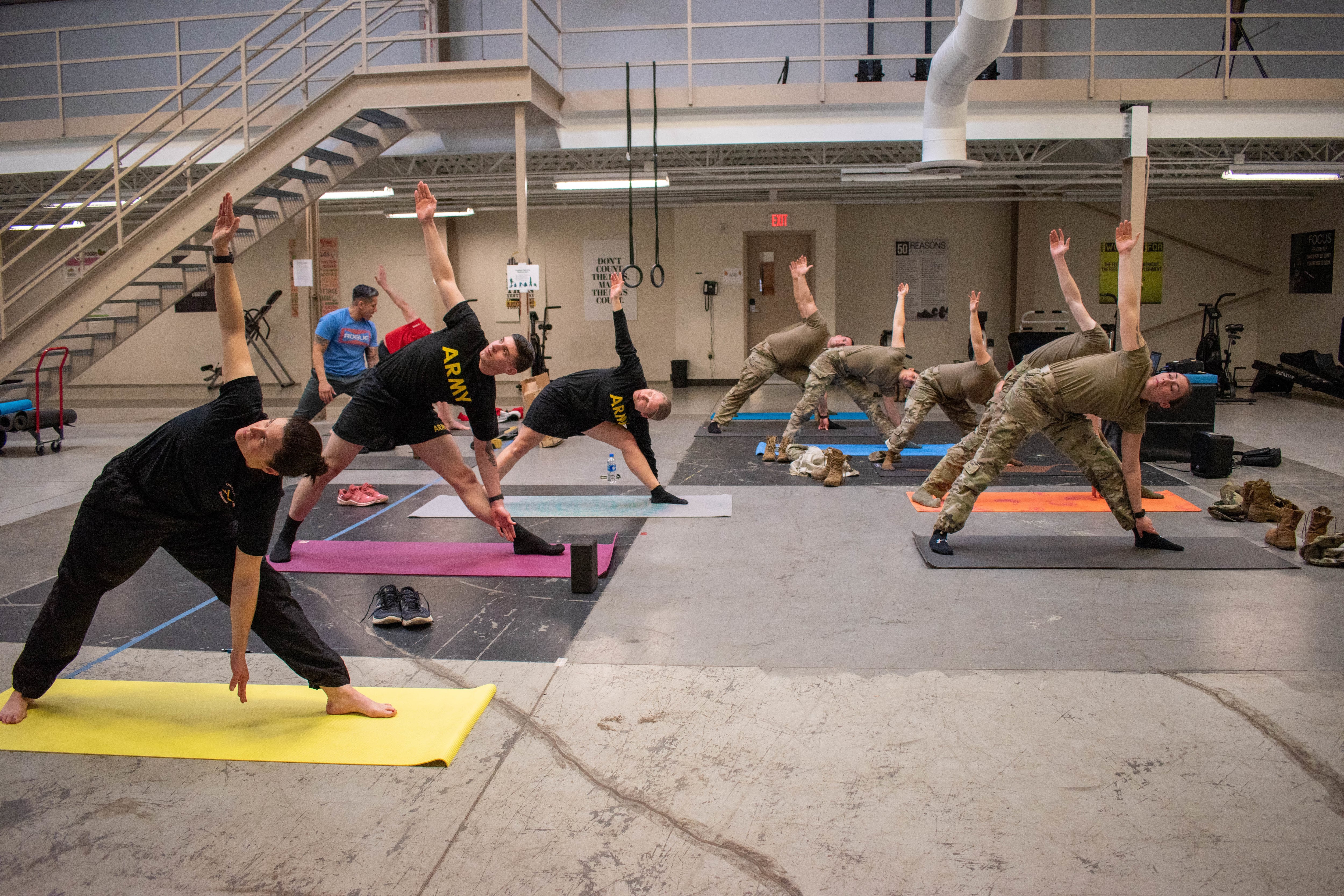The new Army Combat Fitness Test will not be used as a graduation requirement for soldiers going through initial enlisted and officer training courses in fiscal 2021.
The move brings the Army’s Center for Initial Military Training in line with the rest of the force, where service leadership already said the six-event ACFT scores won’t count until 2022.
Army CIMT spokeswoman Megan Reed said the new policy applies to all soldiers in Basic Combat Training, Advanced Individual Training, One Station Unit Training, Warrant Officer Basic Course and the Basic Officer leader Course.
Soldiers are still challenged to train for and pass the ACFT, but “no adverse administrative actions will be taken” against troops who fail it, Reed explained in an email to Army Times.
Additionally, “scores or comments on performance will not be used administratively during the data collection timeframe,” Reed added.
The ACFT officially became the Army’s physical test of record Oct. 1. However, there have been challenges with the test’s implementation because the service is still dealing with quarantine and social distancing requirements brought by the global coronavirus pandemic.
In fiscal 2020, trainees had to pass the ACFT to graduate from basic, with one event allowed to be waived if needed. That waiver policy was also in place for the older fitness test that the ACFT replaced, CIMT commander Maj. Gen. Lonnie G. Hibbard told Army Times in a recent interview.
RELATED

Hibbard said graduation rates “stayed steady” in 2020, even with the introduction of the new ACFT. Trainees have also made significant progress increasing their scores for each of the six events throughout basic, service officials have said, though the leg tuck event has typically been the hardest for soldiers.
In June, the Army announced that soldiers who cannot pass the leg tuck event on the ACFT can instead perform a plank exercise as a temporary alternative for building core strength.
Because the ACFT standards are gender neutral, there has also been some concern that it could negatively impact the careers of women in the Army.
“The pass rates have been higher for males than females in the leg tuck, but again, depending on where the start point was for physical fitness, it may take some females longer to build the muscle strength necessary to be successful,” Hibbard said. “And there’s only so fast we can push a soldier without breaking them, so we have to allow them the time to work out and build the strength.”
Sergeant Major of the Army Michael Grinston told Army Times that soldiers have plenty of time to prepare for the ACFT going into full effect in 2022.
“[It] gives you time to go ahead and see where you’re at, know your deficiencies and correct those and be ready to pass,” Grinston said. “I think that’s more than enough time to be ready.”
Grinston doesn’t anticipate a significant number of soldiers having to leave the Army because of their failure to pass the ACFT.
“It’s just that there is a great anxiety. The goal is not to kick people out. The goal is to actually make them more healthy and physically fit," Grinston added. "So we’re hoping this will have the exact opposite effect. We’ll have less people injured.”
Over time, Army leaders anticipate the ACFT will become a far better test for the service’s needs.
The ACFT’s focus on functional fitness is more practical for soldiering tasks, Army officials say. And the exercises are expected to reduce musculoskeletal injuries, which cost the service half-a-billion dollars in acute patient care annually, plus lost duty days and non-availability for deployment.
Kyle Rempfer was an editor and reporter who has covered combat operations, criminal cases, foreign military assistance and training accidents. Before entering journalism, Kyle served in U.S. Air Force Special Tactics and deployed in 2014 to Paktika Province, Afghanistan, and Baghdad, Iraq.





